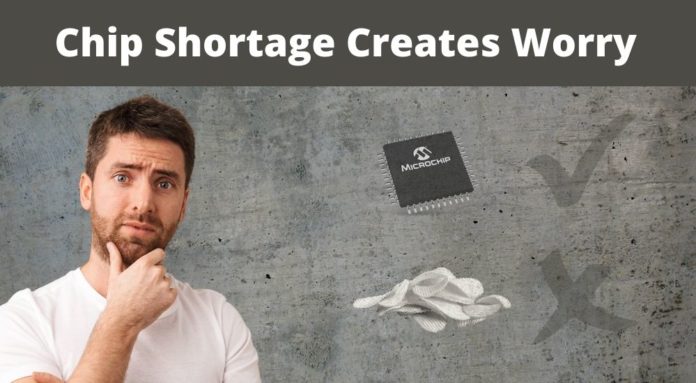A local man is up in arms after grossly misunderstanding a recent newspaper article. When Mark Osbourne, a 34-year-old Razor scooter instructor from Peyton, picked up his local newspaper last week, he was struck by what he calls the publication’s alarmist tone. A front-page article interviewing Jeep dealers in Colorado Springs about the worldwide chip shortage seemed a bit overblown to Osbourne, who says he’s personally had no issues sourcing his own chips.
“Plain, ridged, sour cream and onion, even tortilla: the stores are full of them. The mainstream media over there at Fran’s News and Quilting Quarterly has no idea what it is talking about. Just another example of the coastal elite––and Fran––telling its little lies while Big Potato just sits back and rakes in the profits,” Osbourne says.
When Osbourne broached the issue with a neighbor last week, he was informed that the shortage actually refers to the semiconductor computer chips used in many consumer goods. This shortage has hit the automotive industry particularly hard, delaying the release of new vehicles and causing a supply-side bottleneck that’s seen prices rise by as much as 20 percent. The explanation didn’t sit well with Osbourne, who, admittedly, spent most of his time in high school perfecting the Metallica logo in the pages of his chemistry textbook.
“I told him cars don’t have chips in them. That’s the dumbest thing I’ve ever heard. Cars are made of metal and plastic, maybe a little foam for the seats? I don’t know; I’m not a car scientist. All I know is that they sure as hell aren’t made of chips.” says Osbourne, who attributes the confusion to his neighbor’s fundamental misunderstanding of biofuel.
“I think where he got mixed up––and this can happen to anyone––is that there’s those cars that run on grease from deep fryers, and sometimes it makes the exhaust smell like french fries, but that doesn’t mean they’re made of chips,” he says. “Don’t get me wrong; it would be cool if they were. I would drive around with some guac just in case I ever came across an accident, but I don’t eat things I find on the street anymore, I’ve put that behind me.”
While Osbourne remains unconvinced about the severity of the shortage, he’s already dreaming up ways to turn a profit. The Super Bowl presents a potential bonanza for the crispy capitalist, who believes he can corner the market and make a tidy sum in the process. With Americans consuming more than 11.2 million pounds of potato chips and 8.2 million pounds of tortilla chips on Super Bowl Sunday alone, this would easily be the best idea of Osbourne’s life if only he were correct about a single detail.
“I still don’t believe it, but I’ve already missed out on every other get-rich-quick scheme to come down the pike in the last few years––Bitcoin, meme stocks––and I’m not going to let it happen again,” Osbourne says. While the business plan is inherently flawed, analysts say it still makes a hell of a lot more sense than NFTs.
“I wouldn’t be surprised if NFTs were actually invented by someone very much like Mr. Osbourne, though at least his chips exist outside of the digital ether,” says Hans Corrigan, Professor of Potato-Based Economics at Princeton University. “I can’t see any way in which this scheme will net a profit, but to be honest, I said the same thing about Bitcoin, so who knows,” says Corrigan as he leaves a local Sam’s Club with the maximum allowed daily purchase of Lay’s products.
“I know how this looks, and I’m almost certain he’s wrong, but my newspaper delivery boy retired at age 11 after sinking his allowance into something called FartCoin, and I’m not going to miss out again,” Corrigan adds.












